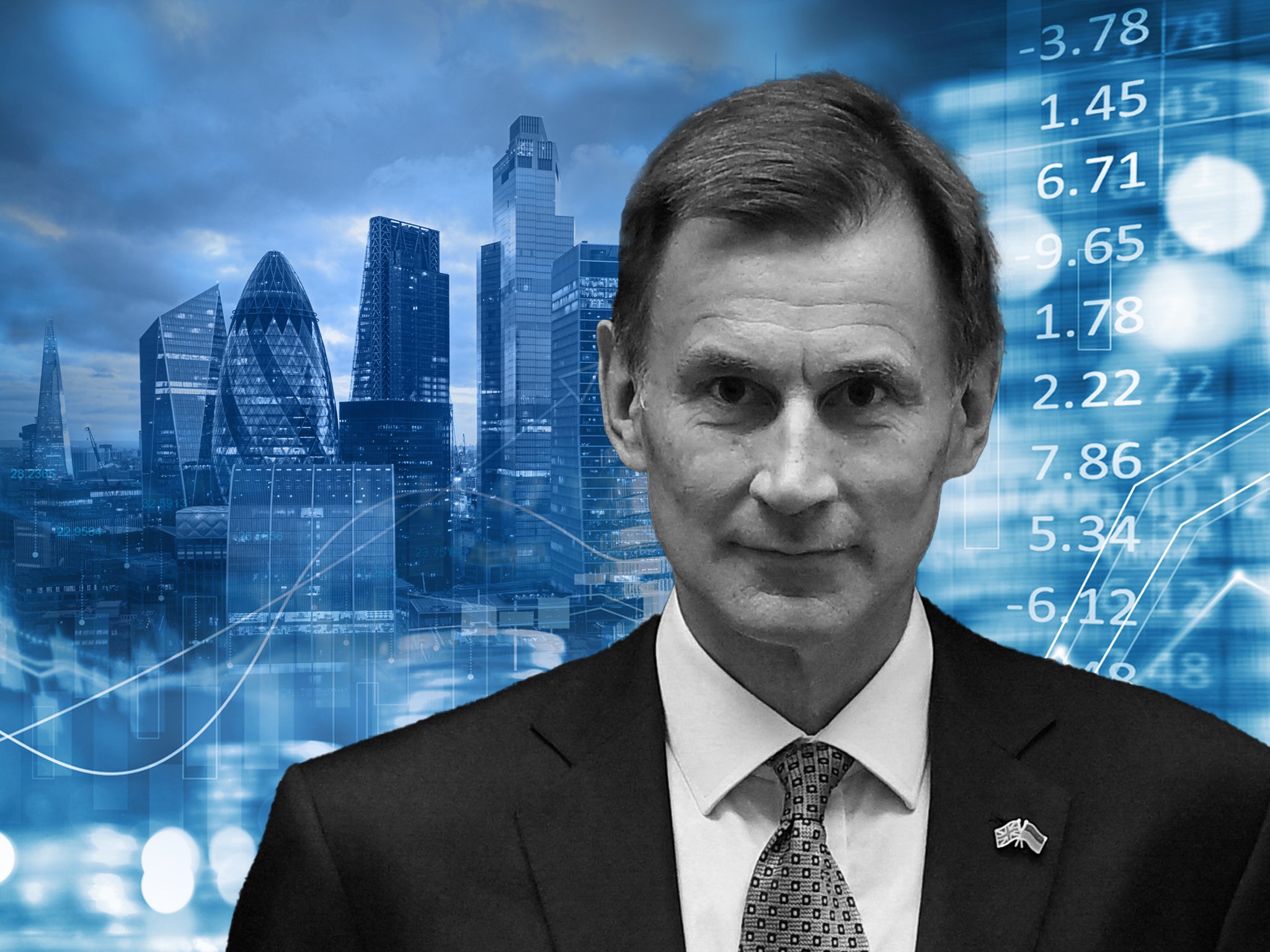Spiralling inflation spells bad news for the country – and the Tories
Editorial: The immediate prospect is of another rate rise by the Bank of England in May, and possibly more after that – taking the Bank rate towards 6 per cent

Rather like a Premier League manager in a relegation scrap suffering an unexpected loss to a lower-placed side, the chancellor has tried to put a brave face on the latest set of disappointing inflation figures. As with the uptick in the annual rate announced last month, the latest figure of 10.1 per cent is above expectations, with worrying signs in the interstices of the data release that core, underlying inflation, driven by higher wages, is stubbornly high.
Inflation will certainly trend lower in 2023: energy and food prices are unlikely to suffer the same spikes as in 2022 because there shouldn’t be a repeat of the initial shock caused by the war in Ukraine. However, the evidence is that some inflation is becoming embedded in the labour market, and that this is proving more resistant to tax hikes and interest rate rises. Therefore, the immediate prospect is of another rate rise by the Bank of England in May, and possibly more after that – taking the Bank rate towards 6 per cent.
With the latest tax increases taking effect simultaneously, most households and businesses will feel poorer, and be poorer, over the next few months. Jobs and businesses will be lost, disposable incomes will continue to fall, and it will be painful. It’s not ideal for a government facing a general election in around a year.
Jeremy Hunt, grim-visaged, at least concedes that escalating food prices in particular are causing hardship, and that “there is no such thing as an automatic fall in inflation”. Nonetheless, he, as the coach of the UK’s national finances, keeps telling the public that he has a plan, and that “everyone is clear that the UK is on the right track”.
That, as is increasingly apparent, is debatable, and it is also now apparent that Rishi Sunak may only just manage to keep the pledge he issued in his keynote speech in January: “We will halve inflation this year to ease the cost of living and give people financial security.”
Halving inflation would imply an annual Consumer Prices Index increase of about 5.5 per cent or so in around January 2024. At the time the pledge was made, its target was ridiculed for being absurdly easy. Most forecasters still see it as achievable, but it now looks much less likely than it did even a few months ago. It could be that the prime minister scrapes a “pass” when the time comes, but he might also just fail to hit his No 1 aim. For a former chancellor and a man who prides himself on his prudence and his mathematical prowess, that is an especially embarrassing prospect.
The most hapless Premier League football teams know that their chance of survival in the top tier is dependent on the results of matches played by other clubs. Likewise, Messrs Hunt and Sunak know that their fate is not entirely in their own hands.
Their plan is to run the public finances in such a way as to bear down on inflation, and thus support the Bank of England’s monetary squeeze. This, the government has achieved. Monetary policy is being supported.
The problem is that the present inflation isn’t being driven by excess demand in the economy as such, which would be relatively straightforward to douse with the present policies. Rather, the cause lies on the supply side, and higher costs in the economy – that is to say, more expensive imports of food and energy, post-pandemic supply chain outages, and a shortage of labour as a result of Brexit and long Covid.
This has been exacerbated by an incipient wage-price spiral. Because there is nothing the Bank of England can do about short-term “cost push” inflation – it cannot issue work visas, control wages, or drill for oil – the Bank is left with no option but to keep raising interest rates, and steeply. As it is sometimes put in economic circles, the Bank of England is a “one-club golfer”.
The political upshot of all this is that the country will enter the election year with uncomfortably high inflation – certainly much higher than the Bank’s almost-forgotten official target of 2 per cent.
We will encounter depressed living standards, with our output stagnant or in mild recession, and there will be less room for the chancellor to make some election-winning tax cuts. Much will also depend on the health of the global financial system, the progress of the war in Ukraine, various other geopolitical risks, and any number of uncertain events.
Mr Sunak and Mr Hunt need the factors that are not entirely within their control to start going their way – and soon.






Join our commenting forum
Join thought-provoking conversations, follow other Independent readers and see their replies
Comments